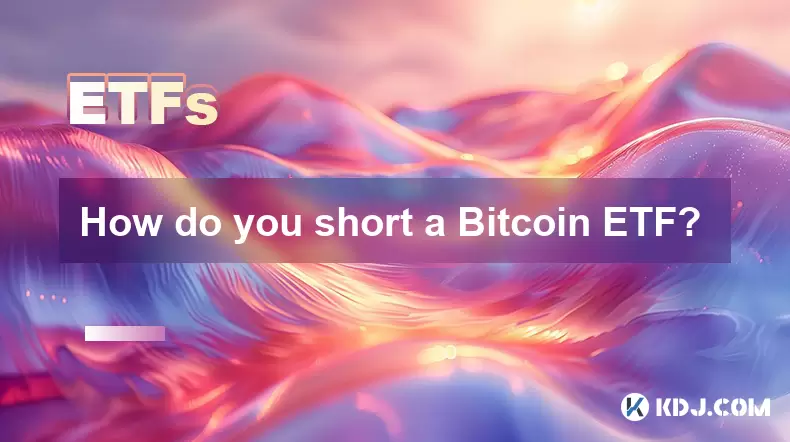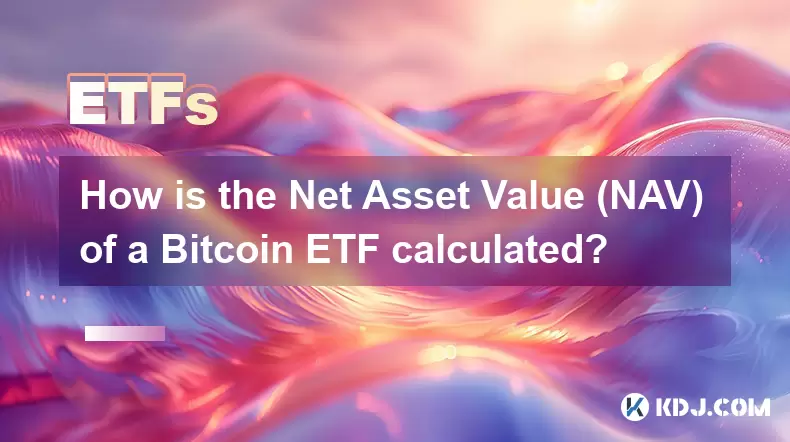-
 Bitcoin
Bitcoin $111,259.5910
2.32% -
 Ethereum
Ethereum $2,789.1977
6.17% -
 Tether USDt
Tether USDt $1.0006
0.06% -
 XRP
XRP $2.4172
3.88% -
 BNB
BNB $671.6585
1.21% -
 Solana
Solana $157.1336
2.90% -
 USDC
USDC $1.0001
0.02% -
 TRON
TRON $0.2913
1.52% -
 Dogecoin
Dogecoin $0.1809
5.04% -
 Cardano
Cardano $0.6213
4.40% -
 Hyperliquid
Hyperliquid $41.7572
6.29% -
 Sui
Sui $3.1623
8.35% -
 Bitcoin Cash
Bitcoin Cash $513.7819
1.17% -
 Chainlink
Chainlink $14.2966
1.64% -
 Stellar
Stellar $0.2904
9.82% -
 UNUS SED LEO
UNUS SED LEO $8.9624
-0.86% -
 Avalanche
Avalanche $19.4161
5.41% -
 Hedera
Hedera $0.1754
8.17% -
 Shiba Inu
Shiba Inu $0.0...01243
4.58% -
 Toncoin
Toncoin $2.8743
2.25% -
 Litecoin
Litecoin $90.6242
3.12% -
 Monero
Monero $328.7483
3.34% -
 Polkadot
Polkadot $3.6433
5.06% -
 Dai
Dai $1.0002
0.02% -
 Ethena USDe
Ethena USDe $1.0011
0.06% -
 Uniswap
Uniswap $8.3418
8.66% -
 Bitget Token
Bitget Token $4.4331
2.68% -
 Pepe
Pepe $0.0...01102
8.17% -
 Aave
Aave $297.1705
-0.69% -
 Pi
Pi $0.4712
1.31%
Are Bitcoin ETFs covered by SIPC insurance?
SIPC covers Bitcoin ETFs held at member brokerages, protecting up to $500,000 per customer, but doesn't insure the value of Bitcoin itself.
Jul 09, 2025 at 05:56 am

What is SIPC Insurance?
SIPC insurance, formally known as the Securities Investor Protection Corporation (SIPC), is a U.S.-based organization that provides limited protection to investors in case their brokerage firm fails or goes bankrupt. It was established in 1970 under the Securities Investor Protection Act and operates similarly to FDIC insurance but for securities rather than cash deposits.
SIPC coverage typically protects up to $500,000 per customer, with a sub-limit of $250,000 for cash balances, held at a single brokerage firm. However, it’s important to note that SIPC does not protect against market losses or fraud. Its main function is to recover customers' assets when a brokerage becomes insolvent.
What Are Bitcoin ETFs?
A Bitcoin Exchange-Traded Fund (ETF) is an investment vehicle that tracks the price of Bitcoin and is traded on traditional stock exchanges like the NYSE or Nasdaq. These funds allow investors to gain exposure to Bitcoin without directly owning or managing the cryptocurrency.
Bitcoin ETFs are regulated financial instruments that hold Bitcoin or derivative contracts linked to its price. They offer convenience, liquidity, and regulatory oversight, making them appealing to institutional and retail investors alike.
However, because they are structured differently from traditional bank accounts or direct holdings of cryptocurrencies, questions arise about their eligibility for investor protection mechanisms like SIPC insurance.
Does SIPC Cover ETFs?
Yes, SIPC generally covers ETFs, including those that track commodities or currencies, provided they are registered with the SEC and held at a participating brokerage. This includes gold ETFs, bond ETFs, and equity ETFs.
In the context of Bitcoin ETFs, if the fund is listed on a major exchange and held through a SIPC-member brokerage, then the shares of that ETF should be eligible for SIPC protection, assuming no other disqualifying factors apply.
That said, the underlying asset—Bitcoin itself—is not insured by SIPC. The insurance applies only to the ETF shares, not to the value of the digital asset backing the fund.
Conditions Under Which Bitcoin ETFs May Not Be Covered
There are several scenarios where SIPC insurance may not apply to Bitcoin ETFs:
- If the ETF is not registered with the SEC or is offered off-exchange.
- If the brokerage holding the ETF is not a member of SIPC.
- If the ETF holds unregistered or non-compliant derivatives tied to Bitcoin.
- If the investor holds actual Bitcoin outside of the ETF structure.
Additionally, if the ETF issuer itself faces insolvency, SIPC will not cover losses related to the failure of the fund provider—it only protects against the bankruptcy of the brokerage firm holding the investor's assets.
How Does This Differ From Crypto Custody Platforms?
Unlike traditional brokerage platforms, crypto custody services do not offer SIPC protection. Most crypto exchanges and wallet providers are not SIPC members and do not fall under the same regulatory framework as broker-dealers.
Some custodians offer private insurance policies to safeguard digital assets, but these are not equivalent to SIPC coverage. These policies vary widely in scope and are often proprietary, meaning their terms and payout conditions are determined by the insurer.
In contrast, a Bitcoin ETF held through a SIPC-covered brokerage benefits from statutory protection up to the applicable limits, offering a higher degree of security for certain types of investors.
Steps to Confirm SIPC Coverage for Your Bitcoin ETF
If you're investing in a Bitcoin ETF and want to ensure your holdings are protected, follow these steps:
- Verify whether the ETF is listed on a major U.S. exchange such as the NYSE or Nasdaq.
- Check if your brokerage is a member of SIPC—this information is usually available on the firm’s website or through the SIPC member directory.
- Ensure the ETF is SEC-registered, which can be confirmed via the SEC’s EDGAR database.
- Review your brokerage’s account statements to confirm that the ETF shares are held in your name or under a "street name" arrangement covered by SIPC.
- Avoid holding the ETF through offshore or unregulated platforms, which typically do not qualify for SIPC protection.
These steps help clarify whether your Bitcoin ETF investment falls within the scope of SIPC coverage.
Frequently Asked Questions
Q: Is Bitcoin itself covered by SIPC?
No, Bitcoin held directly in a wallet or on a crypto exchange is not covered by SIPC. Only securities held through a SIPC-member brokerage are eligible for protection.
Q: What happens if my brokerage firm fails while I own a Bitcoin ETF?
If your brokerage is a SIPC member, you may be entitled to recover your ETF shares up to the coverage limit of $500,000 per customer, including up to $250,000 in cash.
Q: Can I get more than $500,000 in SIPC protection?
Yes, by opening multiple accounts under different ownership categories (e.g., individual, joint, trust), you may qualify for additional SIPC coverage limits.
Q: Are all ETFs automatically covered by SIPC?
No, only ETFs held at a SIPC-member brokerage and registered with the SEC are eligible for coverage. Private or offshore funds may not qualify.
Disclaimer:info@kdj.com
The information provided is not trading advice. kdj.com does not assume any responsibility for any investments made based on the information provided in this article. Cryptocurrencies are highly volatile and it is highly recommended that you invest with caution after thorough research!
If you believe that the content used on this website infringes your copyright, please contact us immediately (info@kdj.com) and we will delete it promptly.
- Sci-Hub, Crypto Coin, and Open Science: A New Frontier or Fool's Gold?
- 2025-07-10 18:30:12
- Bitcoin, Treasury, Holdings: The Corporate Gold Rush Continues
- 2025-07-10 18:30:12
- Bitcoin ETFs, Inflows, and Traditional Funds: A New Era?
- 2025-07-10 19:10:12
- PumpFun's $600M Token Sale: Will PUMP Fuel the Meme Coin Frenzy?
- 2025-07-10 19:10:12
- Fartcoin's Wild Ride: Breakout Dreams and $3 Target…or Just a Passing Wind?
- 2025-07-10 19:15:12
- Bitget Wallet, Pumpfun, and Meme Coins: Catching the Wave
- 2025-07-10 19:15:12
Related knowledge

Bitcoin ETF vs buying Bitcoin on an exchange like Coinbase
Jul 09,2025 at 10:15am
What is a Bitcoin ETF?A Bitcoin ETF (Exchange-Traded Fund) is a financial product that tracks the price of Bitcoin without requiring investors to own ...

How do you short a Bitcoin ETF?
Jul 09,2025 at 06:14pm
Understanding the Basics of Shorting a Bitcoin ETFShorting a Bitcoin Exchange-Traded Fund (ETF) involves betting that the price of the ETF will fall. ...

Are Bitcoin ETFs covered by SIPC insurance?
Jul 09,2025 at 05:56am
What is SIPC Insurance?SIPC insurance, formally known as the Securities Investor Protection Corporation (SIPC), is a U.S.-based organization that prov...

How to track real-time Bitcoin ETF flows?
Jul 09,2025 at 12:56pm
What is a Bitcoin ETF and Why Track Its Flows?A Bitcoin Exchange-Traded Fund (ETF) allows investors to gain exposure to Bitcoin without directly ownin...

How is the Net Asset Value (NAV) of a Bitcoin ETF calculated?
Jul 09,2025 at 11:56pm
Understanding the Net Asset Value (NAV) of a Bitcoin ETFThe Net Asset Value (NAV) is a critical metric for any Exchange-Traded Fund (ETF), including t...

Are there options trading on Bitcoin ETFs?
Jul 10,2025 at 12:01pm
Understanding Bitcoin ETFs and Their Market RoleBitcoin Exchange-Traded Funds (ETFs) are investment vehicles that track the price of Bitcoin without r...

Bitcoin ETF vs buying Bitcoin on an exchange like Coinbase
Jul 09,2025 at 10:15am
What is a Bitcoin ETF?A Bitcoin ETF (Exchange-Traded Fund) is a financial product that tracks the price of Bitcoin without requiring investors to own ...

How do you short a Bitcoin ETF?
Jul 09,2025 at 06:14pm
Understanding the Basics of Shorting a Bitcoin ETFShorting a Bitcoin Exchange-Traded Fund (ETF) involves betting that the price of the ETF will fall. ...

Are Bitcoin ETFs covered by SIPC insurance?
Jul 09,2025 at 05:56am
What is SIPC Insurance?SIPC insurance, formally known as the Securities Investor Protection Corporation (SIPC), is a U.S.-based organization that prov...

How to track real-time Bitcoin ETF flows?
Jul 09,2025 at 12:56pm
What is a Bitcoin ETF and Why Track Its Flows?A Bitcoin Exchange-Traded Fund (ETF) allows investors to gain exposure to Bitcoin without directly ownin...

How is the Net Asset Value (NAV) of a Bitcoin ETF calculated?
Jul 09,2025 at 11:56pm
Understanding the Net Asset Value (NAV) of a Bitcoin ETFThe Net Asset Value (NAV) is a critical metric for any Exchange-Traded Fund (ETF), including t...

Are there options trading on Bitcoin ETFs?
Jul 10,2025 at 12:01pm
Understanding Bitcoin ETFs and Their Market RoleBitcoin Exchange-Traded Funds (ETFs) are investment vehicles that track the price of Bitcoin without r...
See all articles

























































































